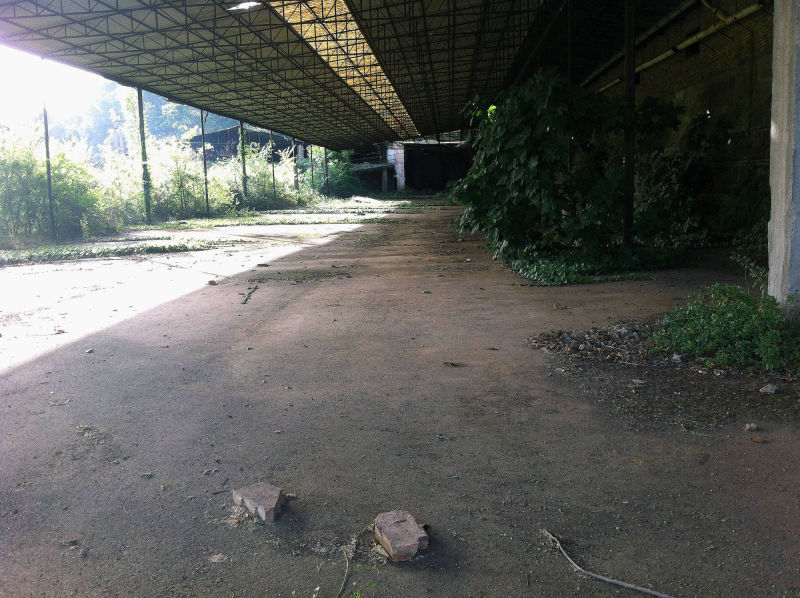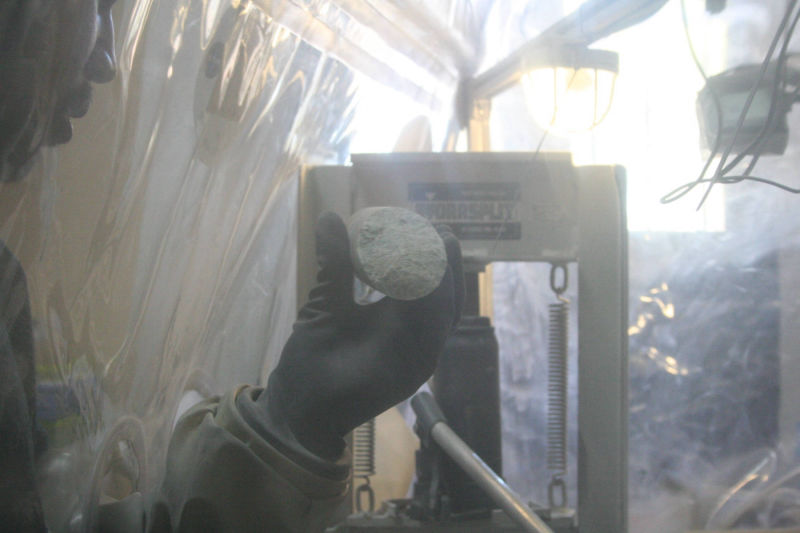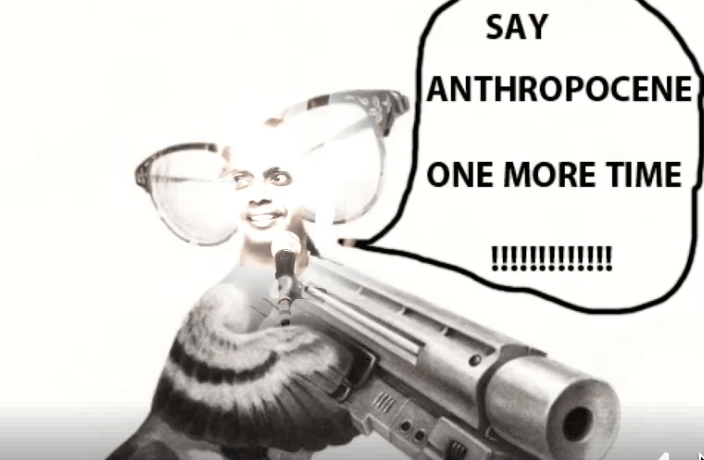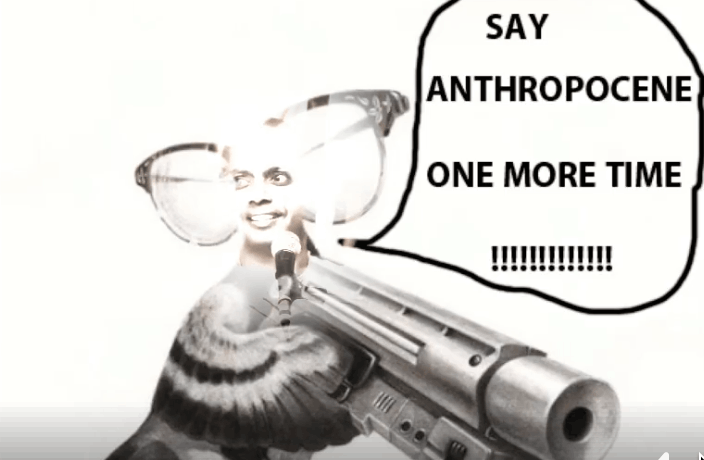PRAXXstudio is an experimental greenhouse for cultivating creative and research practices for alternate histories. The greenhouse is located in Amsterdam, but our roots, rhizomes, shoots, seeds and spores spread beyond the Netherlands. Tinkering with socio-cultural growth media for change, we smuggle between disciplinary boundaries and work across traditional genres and taxonomies. Just like growing plants, cultivating practices can be a matter of trial and error, a dirty job; but it is one that shapes the world we are part of.
Practices comprise all sorts of ways of engaging with the world. As such, they inflect histories and what futures might come. Surprisingly, though, the academic focus on the details of practices often seems to be at odds with framing change in historical flows and currents – concentrating more on the conceptual insight practices might hold. Rather than being content with this analytics we want to engage more closely with those specific practices that we encountered in the different contexts and communities we inhabit*, from life sciences, to archaeology, from evaluation, to storytelling. If – as we learned through our research – practices are so crucial in social, technical, artistic, and scientific change, why not trying to interfere and play with them, cross-breed them, and cultivate them with the skills we have attuned to move between them?
Our greenhouse intends to offer a space where these entanglements of histories and practices can be experimented with, both to re-imagine histories and to intervene into crafting alternative futures. In order to do so, we want to promote research, collaboration, discussion, and creative work on practices and histories across the realms we inhabit.
We hold that attending to alternate histories and the role practices can have in shaping them does not only mean to play with thought experiments about how history could have gone differently or how the future might look. Instead, playing with the narrative and speculative elements of traditional alternate history fiction, science fiction, sciences, and historiography, unraveling alternate histories means attending to multiple readings and possibilities of pasts, presents, and futures. While this might also mean challenging what a traditional validation of historiographical proof and evidence might mean, it does not simply equal fiction: rather it opens up challenges to how we hold fiction and non-fiction apart, and how we conceptualize how change occurs. In this way alternate histories bring to light other ways of weaving historical narratives, including different takes on more traditional issues like gender, class, race, technologies, science, indigenous lives and knowledges; their intersectional overlapping, crossings, and transformations; but also the ways in which worlds can hang together and come about in different ways.
This projects the work of unfolding alternate histories. Work as in re-articulating narratives of the past that might be misdirecting our attention. And work as in creating the conditions of possibility for different futures to come about when different presents meet.
A studio is a place to study. But what does studying involve? Having learned to consider how things are done in practice, we know that studying involves a number of different things, and that a study is far from just being a retreat from the chaos of the world, a haven of mental concentration. Instead, it is a materialsemiotic media for playing, experimenting, sitting, talking, meeting, eating, growing.
In light of our engagement with alternate histories, practices and worlds, we are working in and on an intellectual and creative space, a studio. A workshop to experiment with practices, that is oriented towards the shaping of alternate pasts, presents and futures. This means that the way we want to rearrange our work does not fit squarely with the explicit expectations of an increasingly neoliberal global academic atmosphere. To avoid chocking on the nooses of positivistic and simplistic financial considerations that treat studying as an easily manageable, fordist activity, we openly engage in a more playful set of practices. This means that our research exceeds the more traditional bounds of academia, overflowing into storytelling, art, but also science, journalism, crafting and politics. In doing so, what we do takes many different shapes, from the ones that are more recognizably in the realm of academia, like doing research, publishing in scientific journals, and teaching, to ones that are less so, like curating exhibits, writing fiction, engaging actively in practical activities, and more.
All of these come together and influence each other, cross-breeding freely and promiscuously in the media of our greenhouse, originating hybrid practices. For example, we assemble syllabi for open classes on the currents that shape our world, part teaching, part research, part political action – along the lines of the syllabi that are emerging from social movements such as Black Lives Matter, Decolonizing Science, Trumpism (1 and 2), NODAPL Standing Rock. Simultaneously, our interest in practices and sciences also means calling into question and re-learning much of what we think we know about naturecultures, taking up the exploration of the development of Earth and Planetary Science together with their own making of the planet, the shaping of the Sciences of the Mind and of the Modern Self, and more. Together with the syllabi, we assemble bibliographies, discussion groups, conversations which feed into a seminar session that aims to develop and open these topics to the various communities of practitioners involved. Simultaneously, this effort calls for different methods of engaging, and different genres to shape such discussions, and engage in doing alternate histories: not only academic articles and books, but also exhibits, narrative texts, multimedia storytelling, online platforms, and more.
MU-SCALE PHILOSOPHY Increasingly, microbiologists are stressing the importance of understanding microbial life at a different scale, one that is more attentive to the real interactions of unicellular organisms. From the work of Roman Stocker's lab in imaging and characterizing environmental microfluidics, to the work of Martin Ackermann's lab in better articulating our understanding of bacteria aging and time scales, the microbial world is taking on different and intriguing dimensions. Because of their position in the scientific vanguard, these studies are still far removed from other reflections on the workings of life. Nevertheless, they promise interesting ways to rethinking the relation between physics, chemistry, biology, time, space, and life. This project focuses on grappling with these and similar studies to consider what they can bring to the broader understanding of life.
EXHIBIT // GROUNDWORK The ground on which we walk is supposed to be stable. This visual project plays with the notions of a stable and not-so-stable subsoil, and how this relates to and interacts with what happens on the topsoil. Point of departure is a series of abandoned ceramic factories in Italy whose clay deposits have recently been visited by archaeologists for extracting samples from the subsoil. Clay deposits are often considered to be static things, fixed to a spot on a geomorphological map and fixed ‘out there’, in the wild. Archaeological remains on the topsoil are more or less the opposite: dynamic, on the move, in need of re-visits, in hope of replication and in fact resulting in a different story. The abandoned factory buildings are in between layers, entangled with subsoil and topsoil, staying put yet changing remains, neither nature nor culture. We propose to approach the ground on which we walk through a practice of subsoiling: to slowly break up the soil, but not too much; and to visually catalogue our extraction process during re-visits of the factory sites. This project is an alternate attempt to work with archaeology’s main fantasy of extracting -or unfossilizing- stories from material remains of the past.
FILM // MINING FOR LIFE Started from an encounter between Pawel Wojtasik's fantastic filmic storytelling and Filippo Bertoni's postdoctoral fieldwork, this movie-making project is set in Rio Tinto, in the South West of Spain. This site is part of the Iberian Pyrite Belt, a geological formation spreading for 250 km from Portugal to Spain. Rich in pyrite, the site has been mined since Roman times, and has seen an exponential surge in activities since the 19th century, as copper and sulphur became crucial materials fuelling the burgeoning chemical and electrical industries. Today, as demand for metals is growing again and economic recession pushes for new jobs, mining is starting again. But the drills of prospectors are not the only one drilling the ore: astrobiologists from Madrid affiliated with NASA are scouting the underground ecosystem of the Tinto river to understand the functioning of deep underground chemolitotrophic life. This effort is connected to the ongoing attempts to elucidate the workings of life, and to the search for life on other planets, like Mars. The film project explores these maroon landscapes to articulate what disturbance can be in a complex planetary system and how our attempts to understand shape this very system - and others too - in a variety of ways. In this sense, Rio Tinto functions to disturb our own theory about planets, life, mining, economy and history.
SF // MICROBIAL WORLDS What would life be like if humans were living only with microbial species? This is the question that animates this project. In order to address it, we are busy imagining and describing a world in which that is the case. This planet is the setting of a SF narrative, a speculative fabulation exploring microbial togetherness and the kinds of life forms and forms of life it makes possible.
SPACEWASTE Archaeo and astro archivists share a concern for the preservation and curation of ruins, remnants, traces of the earthly and inter-planetary human past. Whereas historical archivists may be traditionally more concerned with a careful selection of archives that allow for both accountability of those in power and a canonical curation of societal memory, (space) archaeologists and archivists are mainly interested in the preservation of waste - the unwanted, neglected object, or simply the object that became out-of-use and was left behind. Despite what these words may suggest, waste has become the target of large-scale un-wasting practices. The obvious case may be earth, where un-wasting entails a removal of archaeological artifacts from ground soil, a re-use in exhibition spaces or a burying of them in dark and dusty storerooms. The less obvious case may be interplanetary space, yet the millions of waste fragments orbiting around earth are subject to similar un-wasting practices. Space agencies set up large-scale programs for the prevention of new waste (green tech), the re-use of waste (citizen science), the removal of old waste (nets, robotic arms), or the burying of waste into graveyard orbits. As out-of-use space waste may tumble and cause trouble however, it is often referred to as a 'non-cooperative object'. Yet these non-cooperatives are also referred to as human heritage, just as archaeological artifacts: remains of a recent human past which should not be erased or put to rest, but be preserved for future space tourism or for future earthly memory and thereby survival. Selected artifacts may be curated in a terrestrial orbit, and remains on the moon may be attended to as universal heritage following the Antarctica-model of use through non-appropriation. Space may then become a larger scale version of earthly universal vs. national heritage discussions, for instance comparable to the conflict on the Parthenon marbles, with an additional astropolitics to sustain or reinforce spaceclaims. With so many stakes involved: what does it mean to archive and curate the human past in space? And in comparison: on earth?
PLANETMAKING In the 60s, Marshall McLuhan famously framed media as the extensions of man. In his approach, the work of media lies in an ongoing reshaping of human sensoria which rearranges the senses together with technologies, sociopolitical realities and historical dynamics. Finding inspiration in this aspect of his approach, which allows for a less predetermined understanding of the traffic between heterogeneous materialities, sensorial information, and disciplinary definitions, we are interested in considering the consequences of thinking of mediation as the extension not only of man (and which man would that be anyway?) but of the more-than-human more broadly and openly undefined. In this sense, the work of mediation is a material semiotic shaping of worlds that emerges in the relational encounters between different extensions and inflections of sensoria, whose subjects are no longer just subjects but also distributed across diverse practices. Understanding transensorial mediation in this way can help us rethink the articulation between politics, technologies, sciences, environments, life forms and forms of life. The making of timespace and the historically situated planet that we are increasingly pushed to take into account can then be unfolded as the relational encounter and mediation of a myriad of sensoria of different sorts, human, machinic, animal, vegetal, unicellular, exploding these categories as do the ten thousand beings and their technological cyborgs. Starting from this intuition, this project seeks to develop an understanding of transensorial mediation through the specific sensoria involved in the making of the dynamic worlds around us into the planet.
SEMINAR SERIES SOLID KNOWLEDGE
[spring 2018] The bunker has encapsulated, molded, and stunted the imaginaries of the 20th century as an architectural byproduct and illegitimate spawn of aerial war, cabin ecology, cybernetic systems, and modernist brutalism. But, far from being abandoned, the current return of looming apocalyptic futures lets new lives crawl and move into the empty spaces and deep figures of underground shelters. While humans are still the beneficiaries of the security of these spaces, other less fleshy kinds are increasingly making their way in: knowledge, information, data are all crowding into the narrow niches of old and new shelters. Bunkers nowadays are meant to protect, hide, manage and make accessible the circulation of knowledge. These spaces represent a useful vantage point to consider current articulations of theories and practices of knowledge, and their various materialities. While modernity relies on its profession of faith in the immateriality of information - especially in the excitement of the coming singularity, it simultaneously grounds itself in very specific and solid material infrastructures. Attending to the contemporary transformations of bunkers as part of these infrastructures, the seminar will focus on this figure, object, and space to unfold the ways in which knowledge is materialized today; and will ask what these materializations do to modernity, and how playing and tinkering with them might allow us to undo modernity. The first three sessions will be dedicated to building a shared conceptual infrastructure to approach this theme. We will read accounts and explorations of the convergence of ideas and practices of knowledge, design, security and access that will help us elaborate a theoretical toolkit to approach (data) bunkers. Following this more conceptual phase, three more sessions will be devoted to specific cases - also with the help of invited speakers. These will emerge from the discussions and interests of the group, but will also include cases like the Svalbard Global Seed Vault, CyberBunker, the bunkers of the UvA collections, or other examples of encounters between data and bunkers. Aim of the seminar is to develop the conceptual and material tools to rethink the articulations of knowing, designing, protecting, accessing and bunkering, that will be assembled in a collaborative virtual exhibit-repository.
// follow up seminar: intrusions (winter 2018-2019)
1WEEK SEMINAR REFLECTIVE WRITING
[august 2018] A week of structured writing, yet in a relaxing atmosphere. The studio of PRAXX will be the host of this experiment in simultaneous writing and collective reflection on the practice of writing.
THINKPRACTICE CIRCULARITY Circularity and systems theories are gaining traction in Western thought and its worldmaking practices - especially, in the Netherlands, through the notion of the circular economy. This seminar brings together a diverse set of participants interested in better articulating the histories and nuances of systems thinking, and their role in the contemporary world. In particular, we are interested in understanding how systems work across heterogeneous materialities: the specific facility of transmaterial relating and the material changes and infrastructures this involves and requires, then, we hold, can allow us to open up new ways to consider and do systems.
THINKPRACTICE QUESTIONS What is required to ask questions? What kinds of knowledge, problems, answers do they yield? Does it make a difference where questions are asked, and how? And what do questions themselves do in practice? In what way may they for instance be considered as active tools or techniques of bringing neighborhoods together, or as interventions in specific places of consent or conflict? This seminar is a collaborative exercise in doing an ethnography of questions. It brings together participants with various backgrounds interested in engaging with questioning practices in formal settings (schools, government bodies, churches) and less formal ones (bars, homes). By creating a space for bringing together various ecologies of questions, we will collectively explore what it means to do questions - not only for the object of study, but also for our own questioning practices.
THINKPRACTICE ARCHIVES Storing stuff in an orderly way helps for later retrieval and usage. Storing and ordening paper stuff such as archives has extra benefits: political accountability and societal memory. Paradoxically, enhancing access to archives by digital means absences the archivist, the so-called expert which overlooks a proper contextualisation of archives, as well as the object-based archive. Re-contextualization takes place through the work of case-based archives, aggregators, portals and ever changing places of retrieval. Human ordering, considered as the solid basis of proper archiving, is quickly becoming replaced by an automated archivist that demands real-time synchronisation between machines and humans. In this seminar we will take a step back from this ongoing synchronisation, breathe, and explore what it means to store and archive online; and in particular what this industrialised external memory means for human accountability and memory.
FILIPPO BERTONI is a guest researcher at the Media Studies dept. of UvA. Filippo holds a doctorate (2016) in anthropology from UvA and was a postdoc researcher with the AURA project (Aarhus University Research on the Anthropocene). His work focuses on the traffic of knowledge and practices between earth, planetary and life science, and the way these come to define the history of these disciplines, but also to shape and bring to being one specific version of the planetary. To tell the diverse stories that come to shape the planet, he plays with genres, styles, and media, writing at the edges of imaginative fiction.
TJITSKE HOLTROP is a postdoc researcher at the Centre for Science and Technology Studies (CWTS) in Leiden. She studies evaluation and valuation: what is it, how is it done, when is it successful and who decides. Trained as an anthropologist she observes e/valuation in practice: questionnaires, numbers, data analyses, meetings, conclusions and recommendations - and how these forms of accountability allow for change and quality. Her PhD research (2017) at the Amsterdam Institute for Social Science Research (UvA) with Annemarie Mol concerned e/valuation practices of the Dutch civil-military mission in Afghanistan; her current postdoc research concerns experimentation with e/valuation practices in academia.
JELTSJE STOBBE is a guest researcher at the Archaeology dept. of UvA. She is interested in archiving and curating practices of human and non-human pasts and what kinds of storytelling they cogenerate. Fields of study are earthly archaeology, space archaeology and archival science, and the question how archives mediate pasts, presents and futures.
INSPIRATIONS diakron || Glass Bead || Long Now || Metahaven || PAF || The New Centre|| Vitamin Creative Space || Archives Remixed || Avant || Monoskop || Nowviskie || Rhizome || Ruin Memories || Scapegoat
 seminar series // solid knowledge
seminar series // solid knowledge 1week seminar // reflective writing
1week seminar // reflective writing
 thinkpractice // circularity
thinkpractice // circularity
 thinkpractice // archives
thinkpractice // archives
 thinkwork // μ-scale philosophy
thinkwork // μ-scale philosophy
 exhibit // groundwork
exhibit // groundwork
 film // mining for life
film // mining for life
 sf // microbial worlds
sf // microbial worlds
 thinkwork // spacewaste
thinkwork // spacewaste
 thinkwork // planetmaking
thinkwork // planetmaking
 participate // Avantgardening
participate // Avantgardening
 participate // Brugge Triennale
participate // Brugge Triennale













